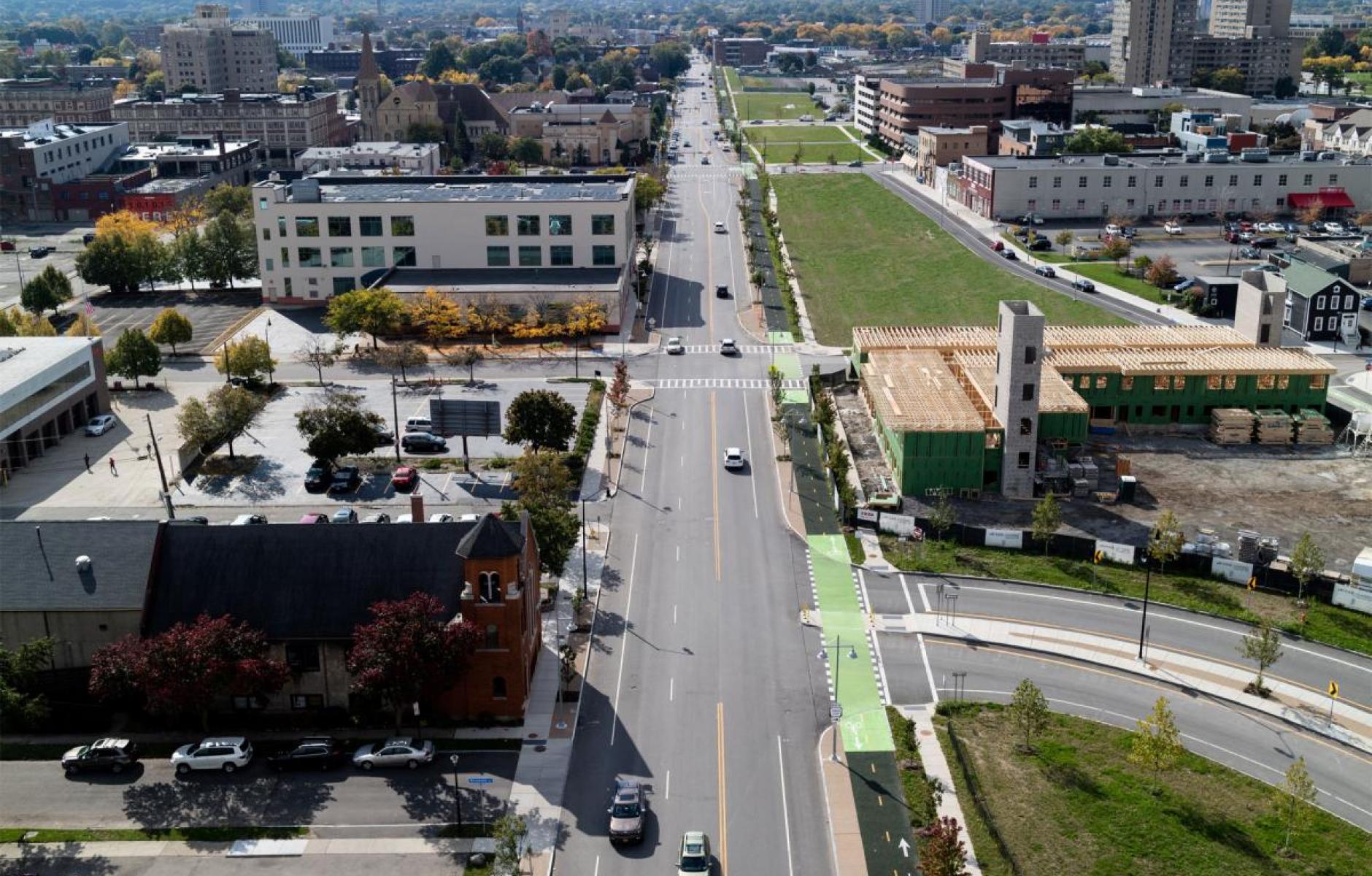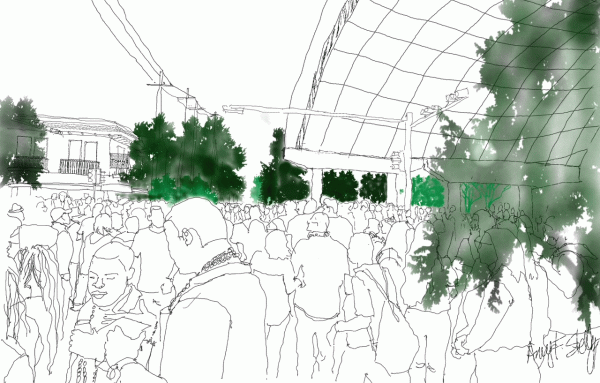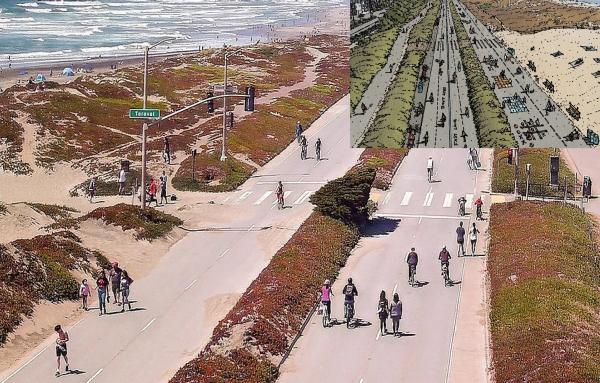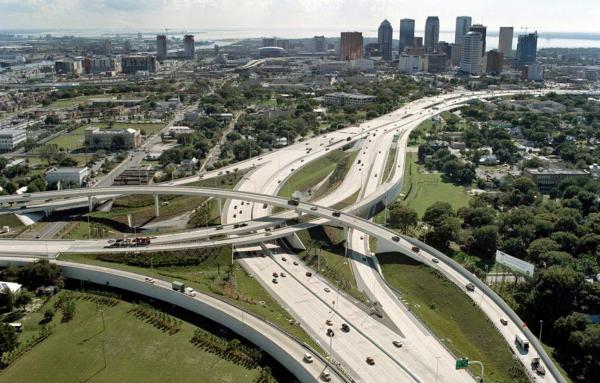
15 in-city highways that need transformation
A new national report by the Congress for the New Urbanism (CNU) urges the wholesale transformation of 15 of America's worst in-city highways to reknit communities disrupted by highway construction decades ago—and generate economic opportunity. The highways featured in this report for too long have served as a barrier between neighborhoods and polluted nearby communities, more often than not home to African-Americans and other people of color. Now, with these highways reaching the end of their designed lifespans, it is time to repair the damage and channel the benefits to members of the current community.
The 2021 edition of the biennial Freeways Without Futures report, issued this week, highlights local campaigns to replace urban highways with streets and amenities more suitable for an urban setting. From Dallas to Duluth, Syracuse to Seattle, communities across America are facing a watershed moment in the history of our transportation infrastructure. With cities, citizens, and transportation officials all looking for alternatives to costly highway repair and expansion, these fifteen campaigns offer a roadmap to better equity, opportunity, health, and connectivity in every neighborhood, while reversing decades of decline and disinvestment.
The report—the seventh in the series since 2008—comes at a time when more American communities are considering or undertaking highway removal. The Biden administration is pursuing a federal highway removal program as part of the American Jobs Act that, if passed, considers for the first time the social and economic ramifications of highway infrastructure and both acknowledges and repairs the damage that federal infrastructure projects have caused.
"As a key part of America's reckoning with institutional racism, there is an urgent need to heal the raw wounds created by the bulldozers that cleared the way for urban freeways," said Rick Cole, CNU's new Executive Director. "In my hometown of Pasadena, the recent success of the 60-year battle to stop the extension of the 710 Freeway opens the way to restore 67 acres to the heart of our city to build affordable housing as part of righting past wrongs and creating future community value."
Across the US, 18 cities have committed to replacing or mitigating major freeways since the late 1980s, including San Francisco, Milwaukee, and New York, which fully removed highways successfully with no adverse impact on traffic. The 15 highways in this report represent the next generation of these projects:
- The Brooklyn-Queens Expressway (Interstate 278), New York, NY
- Claiborne Expressway (Interstate 10), New Orleans, LA
- Inner Loop North, Rochester, NY
- Interstate 244, Tulsa, OK
- Interstate 275, Tampa, FL
- Interstate 345, Dallas, TX
- Interstate 35, Austin, TX
- Interstate 35, Duluth, MN
- Interstate 5, Seattle, WA
- Interstate 81, Syracuse, NY
- Interstate 980, Oakland CA
- Kensington Expressway (NY Route 33), Buffalo, NY
- North Loop (Interstate 35/70), Kansas City, MO
- Scajaquada Expressway (NY Route 198), Buffalo, NY
- The Great Highway, San Francisco, CA
A jury of nationally recognized transportation experts chose this year's list from 32 nominated in-city freeways. The panel reviewed each submission based on a number of criteria: the age and state of the highway, the quality of alternative boulevard or street design, the feasibility of removal, community support for removal, existing political momentum, redevelopment opportunities, potential cost savings, and potential to improve access to opportunity for underserved communities.
Freeways Without Futuresportrays the increasing awareness that last century’s transportation infrastructure was built at the expense of communities of color and an increasing commitment to right these historical wrongs. Now, in more places from coast to coast, the question is no longer whether to replace, but when and how to remove, transform, and repair.
Copies of Freeways Without Futures can be downloaded here.
Note: Sign CNU's on-line petition to support a federal highways-to-boulevards program.







